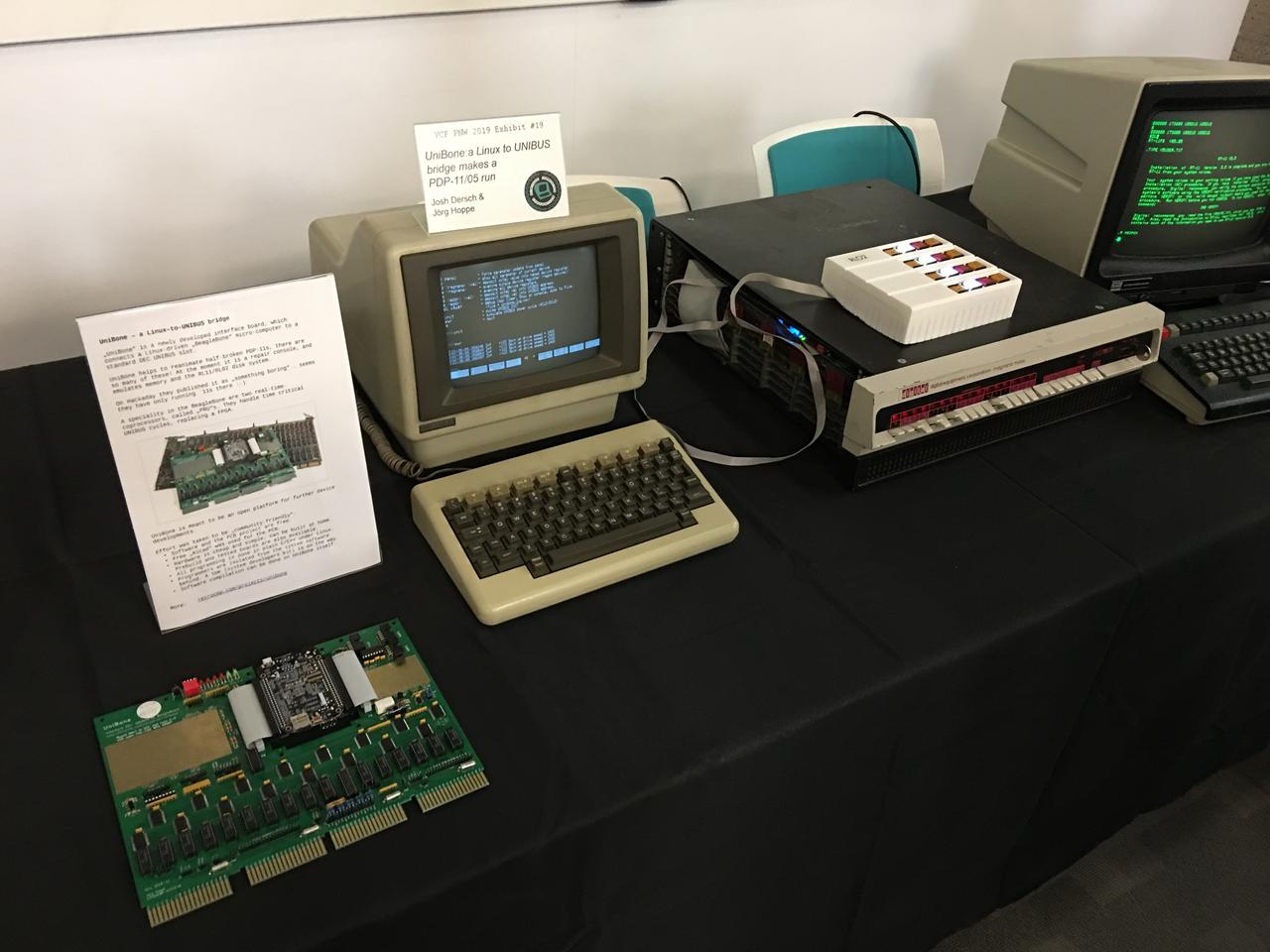Introducing the QBone
Welcome to the DECromancer blog! As should be obvious from our name, we love vintage computing gear, especially Digital Equipment Corporation minicomputers. This is the first in a seven-part series highlighting the road to the latest addition to our product line, the QBone.
Jörg (aka Joerg) Hoppe has been working on homebrew PDP-11 hardware and software for over ten years. His Blinkenbone project brings physical front panels - both vintage and newly manufactured - back to life with realtime control from a simulated PDP. He's also embedded simulators in VT-100 terminals, built tools for diagnosing a faulty PDP-11, scanned and indexed a vast quantity of DEC diagnostics, and helped thousands of people continue to enjoy these vintage machines years past their expected lifespans should have ended.
At the Vintage Computer Festival in the Pacific Northwest, 2019, I met Joerg demonstrating his new device, the UniBone, in a compact PDP-11/05.

His description at the booth read:
„UniBone” is a newly developed interface board, which connects a Linux-driven „BeagleBone” micro-computer to a standard DEC UNIBUS slot.
UniBone helps to reanimate half-broken PDP-11s, there are so many of these!
A speciality in the BeagleBone are two real-time coprocessors, called „PRU”s. They handle time critical UNIBUS cycles, replacing a FPGA.
And so it does. Just a few months later, I had my own UniBone, installed it in my PDP-11/34, and had a working RL02 disk pack emulation. 4 virtual 10MB disk drives was a huge step up - as my /34 only had an RX02. Running it exclusively from 8" floppy disks got old fast!
Joerg was not the first to envision emulating PDP peripherals, of course. The distinct advantage provided by the BeagleBone is unmistakeable, though: by bypassing FPGA design, he was able to get a device into production quickly, and continue to improve the software with community support after its release.
We think the choice has paid off. Friend of DECromancer Josh Dersch added support for the RK11 and RK05 subsystems, then full-fledged MSCP support - bringing disk emulation to his 11/750 UNIBUS VAX.
So when Joerg announced the QBus version, the QBone, we were eager to get our hands on a prototype, and to offer to be his manufacturing partner in North America. There are many more QBus-based PDP-11s in people's hands these days than UNIBUS variants, and many of those are missing key components such as a full complement of RAM, reliable hard disks, extra serial ports, etc. We're eager to help bring these machines back to life for as many people as possible.
Within the next few days, DECromancer will start selling QBones through our store. Until then, we'll have a series of blog posts describing the process of adapting Joerg's first prototype for mass production. We want you to know about the decision making process we faced, and how this ultimately brings you a better product. Plus, a special surprise on the last day -- sure to please the most serious of collectors.
Keep up with us on Twitter at @_DECromancer, and let us know how you're using QBus in 2021!